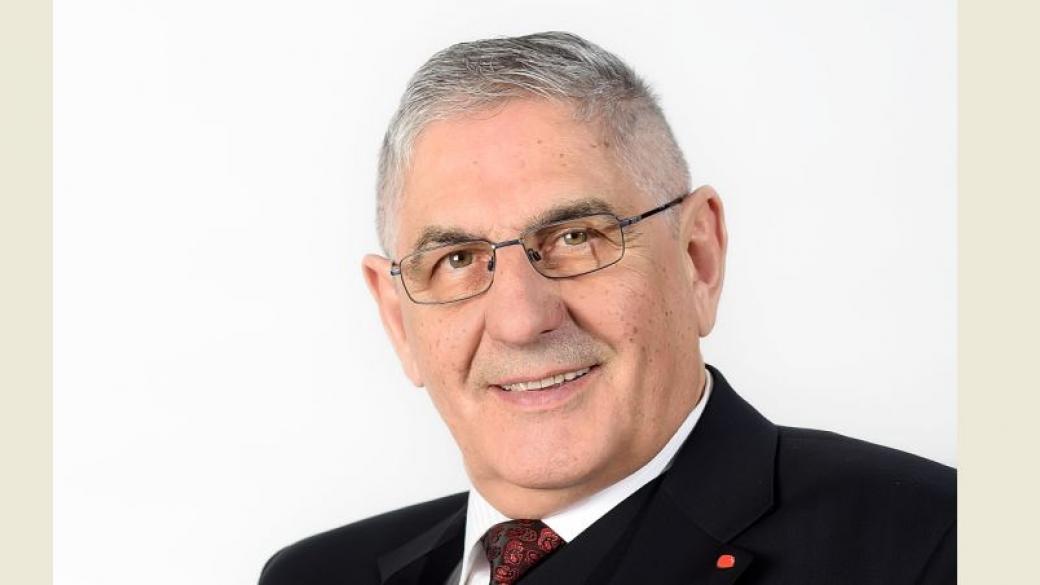Is there light at the end of the tunnel
Tunnel construction in Bulgaria is entirely dependent on the state and its vision on how to build the transport infrastructure

© ECONOMIC.BG / Личен архив
Инж. арх. Валентин Трашлиев е мажоритарен акционер и главен изпълнителен директор на дружествата от групата „Евро Алианс Инженеринг“. Завършил е строително инженерство и архитектура в Техническия университет в Дрезден, Германия.
„Euro Alliance“ is the only big company for tunnel construction in Bulgaria. For 30 years, it has built 150 km of tunnels, 95% of which are overseas. The company dates back to 1990 and, contrary to expectations, it has developed and consolidated first in Germany and Western Europe and then appeared on our market. Today “Euro Alliance” operates in Austria, Germany, Spain, Finland, Greece, Serbia, and also in Bulgaria. It has found a good niche, but this business is not easy at all, because tunnel construction is quite unattractive in terms of working conditions and it cannot rely on permanent commitments and regular funding. In Bulgaria, prices are low, which also determines the quality.
Eng. Valentin Trashliev comments on the development of tunnel construction and construction business:
For years I have been trying to find one word to describe what’s been happening in Bulgaria. And I found the word incongruity. We carry things out to a certain point and then we leave it, with all well-known sayings being forgotten.
Unfortunately, we, the Bulgarians, have no remarkable achievement in the construction, which the whole world can admire. We have several sites, including the bridge over Yantra River near Byala, the Holy Trinity Church in Svishtov, and several other buildings made by Kolyu Ficheto, a self-taught master. In recent times, we have made some progress in scientific theory, but it is criticized in all aspects of its implementation, on which depends the ultimate result – on the contractor's preparation and responsibility, on the control over the construction, on the quality of the materials used. When we add to the whole picture the iniquitous way in which the commissioning procedures take place, we see the consequences. After 1989, we opened our eyes and we saw that everything was done half-way and it was half-destroyed, but in Bulgaria things are still done in the familiar “half-way” method.
The beginning
In 1989, I came across a symposium, discussing the metro construction and the dilemma whether to continue the metro construction in Sofia. Then I worked at the Ministry of Regional Development and Public Works. I have graduated in Germany and one of my fellow students called me that he was coming to that forum and wanted to meet. The topic seemed very interesting to me, because I have also studied tunnel construction and geology during my studies. And that is how I found a niche in Bulgaria. I got in contact with companies in Germany and Austria and I got familiar with the level of tunnel construction at that time. Here, there were several construction giants, including Hydrostroy and Metrostroy. I took around 100 of their employees to a training in Munich. They were shocked at how people worked in Germany, they had no skills in using modern equipment, and lacked work habits. Only a few of the employees managed to succeeded in adapting to the high requirements. The job is heavy and requires a high level of responsibility, rules must be observed, it is dangerous, working is done in the dark. In 4-5 years, we have managed to create a team that is capable of working perfectly.
BG Standards
We often hear Bulgarians say that they work for as much as they are being paid. In fact, they pay them as much as they work, not vice versa. The big question, however, is how this sector works. 99% of the tunnel construction is done using public resources. This type of work in Bulgaria is entirely dependent on the state and its attitudes towards building and paying for the construction of tunnels. However, human resources cannot survive without being sustained. Therefore, it is important for the state to plan well what projects to take on, so that the resources can be used without interruption. In Germany, materials are a bit more expensive than here, but in Bulgaria we make a tunnel that is 4-5 times cheaper than in the West. There the materials are not replaced by cheaper alternatives and there is no compromise on quality. Everywhere geological surveys are done in advance, and yet there are often surprises that cost more, but are being paid. We use state-of-the-art machines, materials and technologies. Novelties in tunnels appear as if in geometric progression. Now, same as before, our construction workers receive a high income. However, keeping the quality labour force is difficult.
Expectations
In Bulgaria, as far as I am informed by the media, it is expected that nearly 90 km of tunnels will be constructed by 2023. Is not clear whether the funding has been secured, what are the deadlines, because the possibilities for implementation are not unlimited. Using all our resources, we can build a maximum of 400-500 meters per month - with a perfect organization and secured financing. This means a maximum of about 4-5 km per year. We cannot suddenly increase our potential as this construction is complicated. But let's face it that such large-scale construction will also require a lot of resources. Who will produce them from one day to the next? They are not waiting for us in stock. It will take a lot of people and machines. Let's not forget that, apart from Bulgaria, tunnels are being built in other countries on the Balkans where there is no potential as well. That is why everything needs to be well planned and I really hope that these projects will commence. I am also hoping that the prices here would be adjusted in the name of high quality and better pay which would keep the workers here.
On new tracks
Our geographic position is such that we cannot always remain the last ones - sooner or later we will be forced to fix the infrastructure in the country. It is unacceptable, for example, to have high-speed trains going to Kalotina, and on the other side of the border, for the trains to constantly break down and catch fire. A colleague was saying that we were on the London-Vakarel-Bombay way, and at Vakarel, a horror movie could be shot. That needs to change. Competent people need to put things on "new tracks" because we are not just running on different tracks from the developed world at the moment, but playing at different stadiums. Let's realize where we really stand. Bulgaria still has potential, but the model of organization of our whole society is wrong.

 Tatyana Yavasheva
Tatyana Yavasheva 